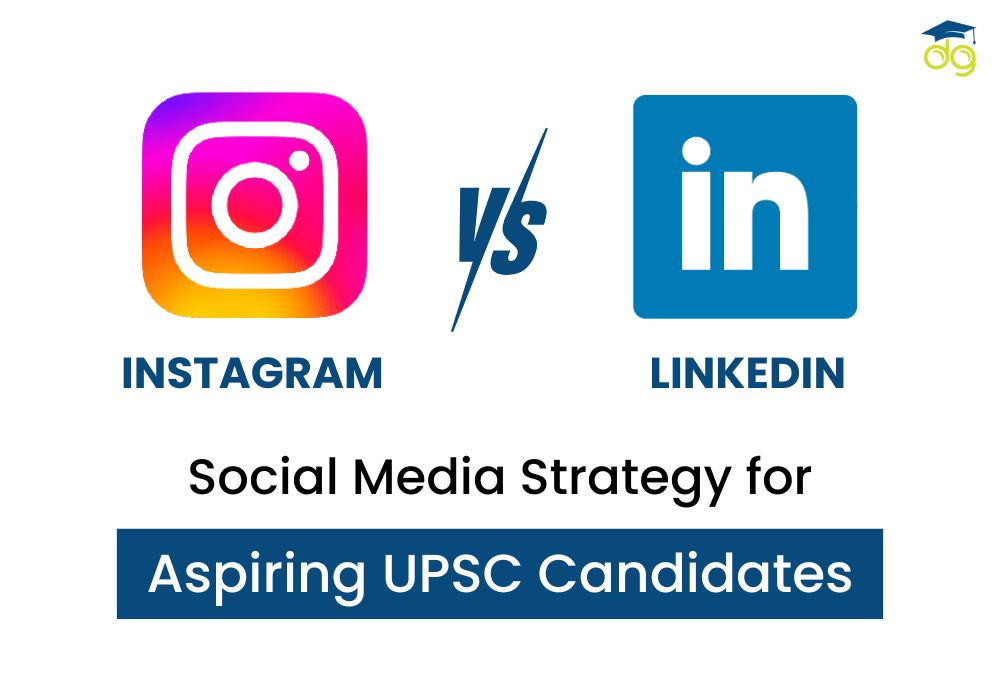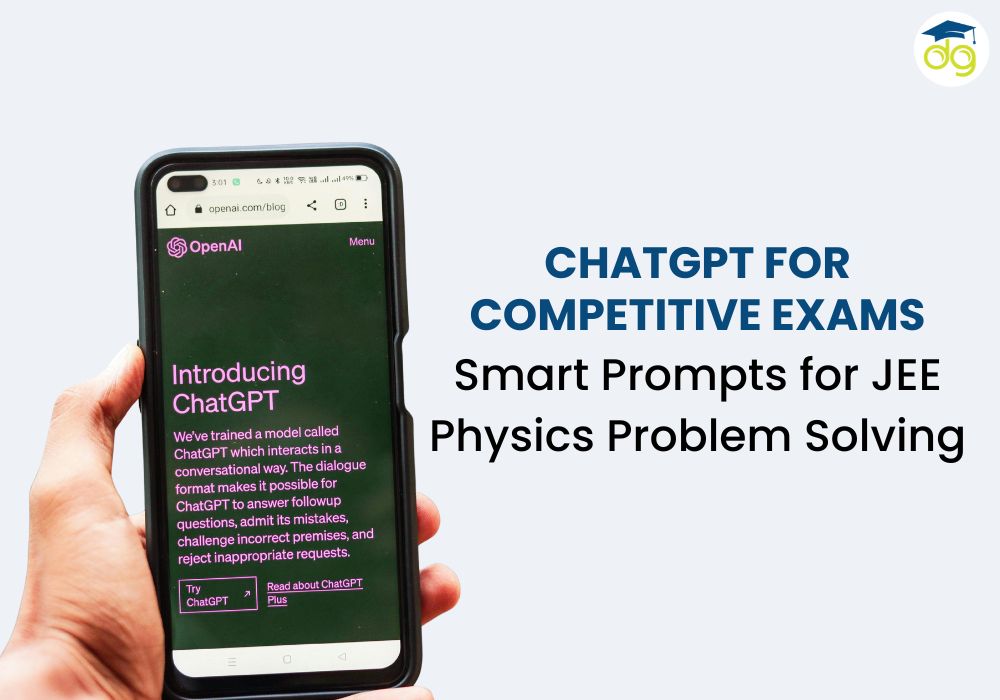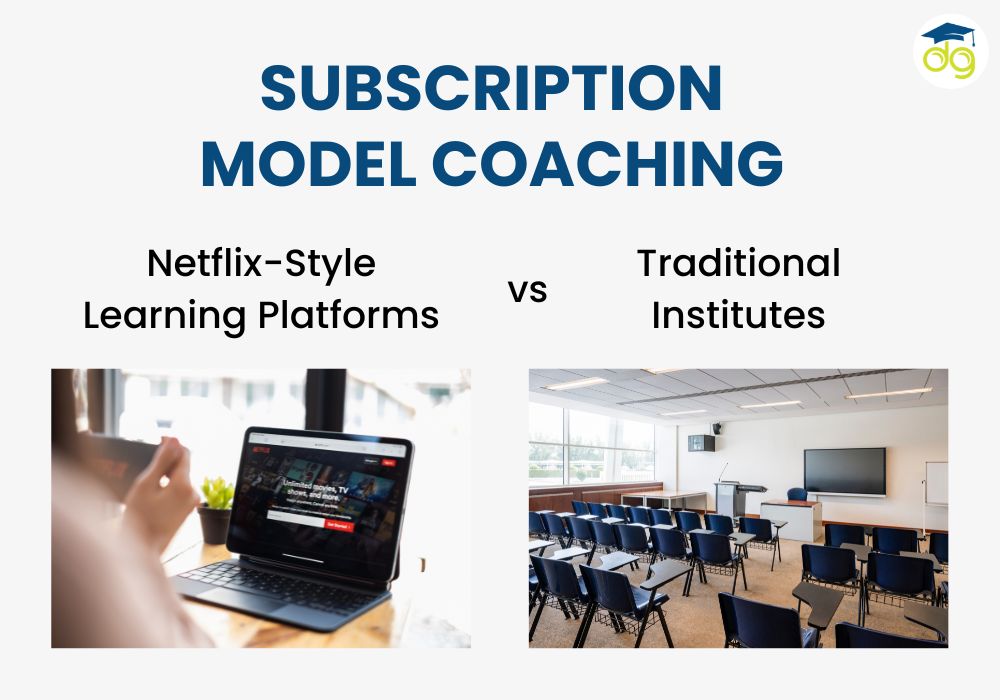JEE Advanced vs JEE Main: Key Differences Every Student Must Know
Understand exam pattern, eligibility, difficulty, and admission differences
If you are studying for Indian engineering entrance exams, then these two names must have been repeated a hundred times to you: JEE Main and JEE Advanced. Both are national-level entrance examinations, but they are very different in nature, pattern, difficulty level, and even eligibility.
In this blog, we will make everything you need to know about the two exams – simple and easy to understand. Whether you are a student or a parent attempting to make sense of the process, this post will clarify everything for you.
What Is JEE?
JEE stands for Joint Entrance Examination. It is the most important engineering entrance test in India. It is split into two parts:
- JEE Main
- JEE Advanced
Both are connected, but not everyone who gives JEE Main can appear for JEE Advanced.
Let’s go section by section to understand the differences.
1. Purpose of the Exams
JEE Main
JEE Main is an entrance exam for:
- NITs (National Institutes of Technology)
- IIITs (Indian Institutes of Information Technology)
- CFTIs (Centrally Funded Technical Institutions)
Some private colleges also accept JEE Main scores.
It is also a qualifying exam for JEE Advanced. That means only those who score well in JEE Main can appear for JEE Advanced.
JEE Advanced
JEE Advanced is only for students aiming to get into the Indian Institutes of Technology (IITs) — the most prestigious engineering colleges in the country.
So if your dream is to get into an IIT, you’ll have to:
- First clear JEE Main with a top rank.
- Then qualify in JEE Advanced.
2. Organising Bodies
- JEE Main is conducted by the National Testing Agency (NTA).
- JEE Advanced is conducted by one of the IITs on a rotational basis. For example, one year IIT Delhi might conduct it, the next year it might be IIT Bombay.
This change in the conducting body affects how the question paper is designed. IITs are known for asking tricky and thought-provoking questions.
3. Exam Frequency and Attempts
Exam | Attempts Allowed | Exam Frequency |
| JEE Main | 3 consecutive years | 2 times per year |
| JEE Advanced | 2 consecutive years | Once a year |
JEE Main is held twice every year — usually in January and April. You can take both attempts and the best of the two is considered.
JEE Advanced, on the other hand, is held only once a year. And you can only attempt it twice — and only in two consecutive years.
4. Eligibility Criteria
JEE Main
- You must have passed Class 12 with Physics, Chemistry, and Mathematics.
- No age limit.
- You can appear for JEE Main up to three years after your Class 12.
JEE Advanced
- Only the top 2.5 lakh rank holders in JEE Main can apply.
- You must have either passed Class 12 this year or the year before.
- There’s an age limit — general category students must be born on or after October 1, 1999.
5. Exam Pattern
JEE Main
- Subjects: Physics, Chemistry, Mathematics
- Mode: Online (Computer-based)
- Questions: 90 total (30 from each subject)
- Type: Objective (Multiple Choice and Numerical)
- Total Marks: 300
- Duration: 3 hours
JEE Advanced
- Subjects: Physics, Chemistry, Mathematics
- Mode: Online
- Papers: 2 (Paper 1 and Paper 2 – both mandatory)
- Duration: 3 hours per paper (total 6 hours)
- Type: Variety (MCQs, numerical, match the following, paragraph-based)
- Marking: Varies each year; includes negative marking
The JEE Advanced paper is more unpredictable. The number of questions, types, and marking scheme can change every year.
6. Level of Difficulty
- JEE Main is moderate. It checks your understanding of Class 11 and 12 NCERT concepts.
- JEE Advanced is tougher. It checks how well you can apply concepts in unusual and analytical problems.
In JEE Advanced, even if you know the concept, applying it in a twisted question is where students struggle. It tests your clarity, speed, and accuracy.
7. Syllabus Comparison
The syllabus is almost the same, but JEE Advanced sometimes includes topics that are not part of JEE Main.
Subject | Extra Topics in JEE Advanced |
| Physics | Thermal Physics, Optics |
| Chemistry | Salt Analysis, Qualitative Analysis |
| Maths | Statistics, Advanced Coordinate Geometry |
If you’re preparing for JEE Advanced, you’ll need to study beyond NCERT in many areas.
8. Admission Process
Exam | Admission Scope |
| JEE Main | NITs, IIITs, CFTIs, Private Colleges |
| JEE Advanced | IITs only |
Also, after JEE Main results are out, you apply for colleges through JoSAA counselling. JEE Advanced rank holders also go through the same counselling portal.
9. Cut-off Trends
The cut-off for JEE Main varies every year based on difficulty and number of applicants.
For example:
Year | General Cut-off (JEE Main) |
| 2021 | 87.89 |
| 2022 | 88.41 |
| 2023 | 90.78 |
To be eligible for JEE Advanced, you need to be within the top 2.5 lakh candidates across all categories.
10. Preparation Strategy
For JEE Main:
- Focus more on speed and accuracy.
- Practice mock tests regularly.
- Revise NCERT thoroughly, especially Chemistry.
- Time management is key.
For JEE Advanced:
- Strengthen conceptual clarity.
- Go beyond just formulas – understand why things work.
- Solve previous year papers to understand pattern.
- Learn to handle unexpected question formats.
11. Coaching or Self-Study?
This really depends on your learning style.
If you’re disciplined and have access to good resources, self-study is possible.
But if you need structured guidance, coaching can help – especially for JEE Advanced.
Many online platforms now offer high-quality material at lower prices than offline coaching.
12. How to Choose Between the Two?
Actually, you don’t choose.
Everyone who’s serious about engineering starts with JEE Main. If you qualify with a high rank, you then appear for JEE Advanced.
If you only want to join NITs or IIITs, you don’t need to prepare for Advanced.
But if your goal is IITs, there’s no other way — JEE Advanced is the only path.
13. What If You Don’t Qualify Advanced?
That’s absolutely okay.
There are hundreds of great engineering colleges in India that accept JEE Main scores. You can still have a bright future even if you don’t make it to IIT.
What matters most is your interest in engineering and how much effort you put into learning and growing.
14. Financial Support and Reservations
Both exams follow the Government of India’s reservation policies:
- SC/ST/OBC-NCL/EWS/Persons with Disabilities get relaxation in cut-offs.
- Fee reductions and scholarships are available once you enter college.
15. Role of Class 12 Marks
Earlier, your Class 12 board marks played a bigger role. But now:
- For JEE Main: You just need to pass Class 12.
- For JEE Advanced: You must be in the top 20 percentile of your board or score 75% and above (general category).
16. Do JEE Scores Help Abroad?
Some universities outside India — especially in Singapore, Germany, and UAE — accept JEE Advanced scores for engineering admissions. But you’ll still need to check their specific criteria.
FAQs
Q1. Can I give JEE Advanced without giving JEE Main?
No. You must qualify JEE Main first. Only the top 2.5 lakh rankers are allowed to give JEE Advanced.
Q2. What is the age limit for JEE?
- JEE Main: No age limit.
- JEE Advanced: Born on or after Oct 1, 1999 (for General/OBC).
Q3. Can I get into an IIT with JEE Main?
No. IIT admissions only happen through JEE Advanced.
Q4. Is JEE Advanced harder than JEE Main?
Yes. JEE Advanced is more challenging, both in terms of depth and pattern.
Q5. How many hours should I study for JEE?
There is no magic number. Consistency matters more than number of hours. On average, 5-6 focused hours a day over 1-2 years works well for most students.
Final Thoughts
The journey from JEE Main to JEE Advanced is intense — but not impossible. With the right mindset, support, and strategy, thousands of students clear these exams every year.
Remember, it’s not about clearing both exams — it’s about finding the best place for you to grow and build your career. IITs are great, but so are NITs, IIITs, and even many private colleges.
And if you’re still unsure about your career path or coaching options, check out Skoodos Bridge — a trusted platform for career guidance, learning resources, and entrance prep support.
Categories
Archives
- October 202519
- September 202520
- August 202522
- July 202524
- June 202524
- May 202526
- April 202530
- March 202523
- February 202513
- January 202523
- December 202429
- November 20246
- September 20245
- August 202422
- July 202415
- May 20249
- June 202424
Similar Posts

Gaming Meets Medicine: VR Therapy Careers for NEET Aspirants
by Skoodos Bridge

WhatsApp Group Study: Boost Your Competitive Exam Preparation
by Skoodos Bridge

Drone Engineering Careers: Aerospace Pathways, Exams & Job Opportunities
by Skoodos Bridge

Instagram vs LinkedIn: Smart Social Media Strategy for UPSC Aspirants
by Skoodos Bridge

YouTube Shorts for Revision: Micro-Learning to Memorize Formulas Quickly
by Skoodos Bridge

ChatGPT for JEE Physics: Smart Prompts to Master Problem Solving
by Skoodos Bridge

Space Technology Careers: ISRO Opportunities Beyond Aerospace Engineering
by Skoodos Bridge

Digital Detox Strategies for Competitive Exam Students in 2025
by Skoodos Bridge

Subscription Model Coaching vs Traditional Institutes: Netflix-Style Learning
by Skoodos Bridge


Leave a Comment